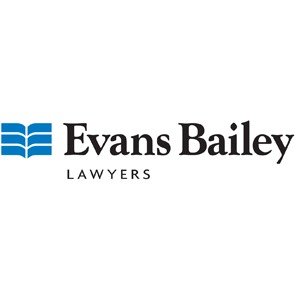Best Tax Increment Financing Lawyers in New Zealand
Share your needs with us, get contacted by law firms.
Free. Takes 2 min.
Or refine your search by selecting a city:
List of the best lawyers in New Zealand
About Tax Increment Financing Law in New Zealand
Tax Increment Financing (TIF) is a public financing method used globally to support urban renewal and infrastructure investments. While it is more commonly utilized in countries like the United States, New Zealand is exploring this innovative financial tool as part of its urban development strategies. TIF allows municipalities to fund public infrastructure projects by capturing the future tax benefits that are a result of increased property values in designated areas. Given the unique fiscal and legal frameworks in New Zealand, TIF is adapted to align with local needs and regulations.
Why You May Need a Lawyer
Engaging in Tax Increment Financing can be a complex endeavor that involves numerous legal, regulatory, and financial considerations. Here are some situations where you may require legal help:
- Understanding the Regulatory Environment: Legal professionals can guide you through the specific laws and regulations governing TIF in New Zealand.
- Developing TIF Districts: Establishing TIF districts involves legal processes and public consultations, requiring an understanding of land use and development law.
- Negotiating Agreements: Lawyers can help in negotiating and structuring agreements between developers, municipalities, and other stakeholders.
- Compliance and Risk Management: Ensuring compliance with fiscal policies and managing associated risks can be efficiently handled with legal advice.
Local Laws Overview
Tax Increment Financing in New Zealand is shaped by a framework that involves both national and local laws. Key aspects include:
- Resource Management Act: This act plays a critical role in land use planning and development permissions, affecting how TIF projects can proceed.
- Local Government Act: Governs how local councils can raise funds and invest in public infrastructure, crucial for TIF operations.
- Public Consultation Requirements: New Zealand's legal framework mandates public involvement in significant urban development projects.
- Fiscal Responsibility: Councils are required to adhere to fiscal responsibility codes that affect how they can utilize and repay TIF funds.
Frequently Asked Questions
What is Tax Increment Financing?
Tax Increment Financing is a method of funding urban development projects by capturing future increases in property taxes within a defined area.
How does TIF work in New Zealand?
In New Zealand, TIF is still an emerging concept. It involves collaborations between local councils and developers to fund infrastructure by leveraging future tax increments due to enhanced property values.
Who can initiate a TIF project?
TIF projects can be initiated by local councils, often in partnership with private developers or through regional economic development agencies.
Are there risks involved with TIF?
Yes, risks include potential shortfalls in expected tax revenues, changes in property market values, and compliance challenges.
Can TIF be used for all types of projects?
Generally, TIF is suited for public infrastructure and redevelopment projects that are expected to spur economic growth and increase property values.
Do TIF projects require public approval?
In New Zealand, certain TIF projects may require public consultation and adherence to participatory governance standards.
Can TIF impact existing public services?
TIF funding mechanisms must consider the impact on existing public services, ensuring that they do not divert necessary resources from other community needs.
Is there a time limit on TIF projects?
TIF projects typically have defined durations, aligning with the time required to realize tax increments and repay any bonds or debts.
How is the success of a TIF project measured?
Success is measured by increased property values, improved public infrastructure, and positive economic impacts within the designated TIF area.
What role does government play in TIF?
The government, primarily at the local level, plays a pivotal role in facilitating, managing, and overseeing TIF projects to ensure they align with public interests.
Additional Resources
For more information and assistance regarding Tax Increment Financing, consider reaching out to the following resources:
- New Zealand Treasury: Provides guidance on public financing methods, including innovative approaches like TIF.
- Local Council Offices: Offer insights on region-specific TIF projects and consultations.
- Legal Professionals Specializing in Urban Development: Can provide detailed legal advice tailored to your TIF interests.
- Economic Development Agencies: Work on facilitating projects that boost regional economic growth through methods like TIF.
Next Steps
If you require legal assistance with Tax Increment Financing in New Zealand, consider taking the following steps:
- Consult a Legal Professional: Reach out to lawyers with expertise in public finance and urban development law.
- Assess Your Needs: Determine the scope of your project and identify specific areas where legal support is needed.
- Engage with Local Authorities: Engage with your local council to understand their requirements and processes related to TIF projects.
- Prepare Documentation: Work with your legal advisor to ensure that all necessary documentation is thorough and compliant with New Zealand laws.
Lawzana helps you find the best lawyers and law firms in New Zealand through a curated and pre-screened list of qualified legal professionals. Our platform offers rankings and detailed profiles of attorneys and law firms, allowing you to compare based on practice areas, including Tax Increment Financing, experience, and client feedback.
Each profile includes a description of the firm's areas of practice, client reviews, team members and partners, year of establishment, spoken languages, office locations, contact information, social media presence, and any published articles or resources. Most firms on our platform speak English and are experienced in both local and international legal matters.
Get a quote from top-rated law firms in New Zealand — quickly, securely, and without unnecessary hassle.
Disclaimer:
The information provided on this page is for general informational purposes only and does not constitute legal advice. While we strive to ensure the accuracy and relevance of the content, legal information may change over time, and interpretations of the law can vary. You should always consult with a qualified legal professional for advice specific to your situation.
We disclaim all liability for actions taken or not taken based on the content of this page. If you believe any information is incorrect or outdated, please contact us, and we will review and update it where appropriate.
Browse tax increment financing law firms by city in New Zealand
Refine your search by selecting a city.

















